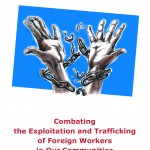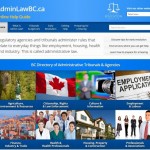Modern Day Slavery – How To Seek Help
 Do you know someone who is working in a low paying job with unsafe or unsanitary conditions, is subjected to abuse, has no say in his or her situation and/or is being threatened with deportation? If so, that person may be a victim of human exploitation or trafficking. This injustice happens everyday but it is foreign workers that are most vulnerable to such crimes.
Do you know someone who is working in a low paying job with unsafe or unsanitary conditions, is subjected to abuse, has no say in his or her situation and/or is being threatened with deportation? If so, that person may be a victim of human exploitation or trafficking. This injustice happens everyday but it is foreign workers that are most vulnerable to such crimes.
Every year Canada takes in roughly 150,000 temporary foreign workers, with BC and Ontario leading the way. These individuals are employed as live-in caregivers, agricultural workers, engineers, doctors and hospitality service providers. Very often foreign workers feel socially isolated, face language barriers and have limited employment options, all of which makes them particularly vulnerable to exploitation. All workers in Canada, including temporary foreign workers, are protected under Canadian employment and labour laws and it is critical that temporary foreign workers are aware that their rights are protected and help is available.
In BC there a number of agencies dedicated to preventing human exploitation and trafficking, offering services for affected individuals. The Office to Combat Trafficking in Persons is a good starting point for people seeking help. It offers help with housing assistance, as well as access to health and legal aid services.
For more information and key contacts have a look at the Modern Day Slavery information sheet on Clicklaw.





